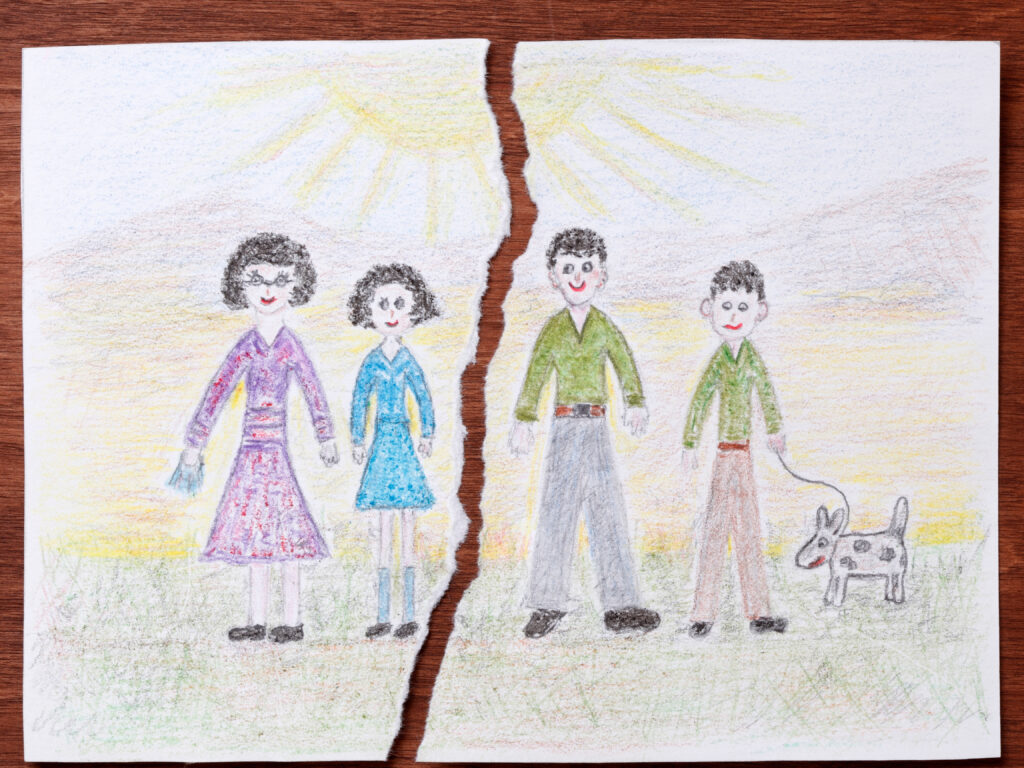
Parental separation is a significant life event that can have lasting effects on children. It’s important for parents to comprehend the different ways in which divorce can affect children as they deal with this difficult situation. This article examines the complex impact of parental separation on children and provides guidance for parents supporting their children through this process.
Table of Contents
ToggleI. Emotional Impact of Parental Divorce
Increased Stress and Anxiety
- Divorce often introduces uncertainty and change, leading to heightened stress levels in children.
- Feelings of anxiety may arise from the fear of the unknown and concerns about the future.
Sense of Loss and Grief
- Children may experience a profound sense of loss, mourning the dissolution of their parents’ marriage.
- Grieving the idea of a unified family can manifest in various emotional responses, such as sadness or anger.
Conflicted Loyalties
- Children may feel torn between parents, struggling with conflicting loyalties and a sense of divided allegiance.
- Managing loyalty conflicts can contribute to emotional turmoil and internal strife.

II. Behavioral Changes in children with divorced parents
Academic Performance
- Divorce can impact a child’s academic performance due to emotional distress and disruptions in routine.
- Maintaining open communication with teachers and providing academic support is crucial during this time.
Changes in Social Behavior
- Children may exhibit changes in social interactions, ranging from withdrawal to acting out.
- Creating a supportive environment and encouraging healthy social connections can help lessen negative social impacts.
Risk of Substance Abuse
- Adolescents from divorced families may be at a higher risk of turning to substance abuse as a way of coping.
- Parents should be vigilant and provide avenues for open dialogue about the risks associated with substance use.

III. Long-Term Consequences of Parental Divorce
Impact on Future Relationships
- The experience of parental divorce can shape a child’s perspective on relationships and commitment.
- Encouraging healthy relationship models and addressing concerns through therapy can mitigate potential long-term consequences.
Mental Health Challenges
- Long-term emotional implications may contribute to mental health challenges such as depression or anxiety.
- Regular check-ins with a mental health professional can provide crucial support for children facing these challenges.
Resilience and Growth
- Despite the challenges, many children of divorced parents demonstrate resilience and personal growth.
- Providing a stable and supportive environment and offering access to counseling can promote positive adaptation.
Watch and Read!
- “The Unexpected Legacy of Divorce” by Judith S. Wallerstein, Julia M. Lewis, and Sandra Blakeslee
- “Between Two Worlds: The Inner Lives of Children of Divorce” by Elizabeth Marquardt
- “Divorce Poison: How to Protect Your Family from Bad-mouthing and Brainwashing” by Dr. Richard A. Warshak
FAQ
Divorce can lead to sadness, anger, and anxiety in children. Support and communication help them cope.
Yes, it can lower grades and motivation. A stable, supportive home helps reduce this impact.
Keep open communication.
Reassure them of both parents’ love.
Avoid exposing them to conflict.
Consider counseling for additional support.
The Impact of Parental Separation on Children

